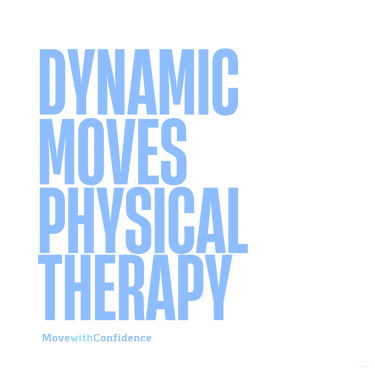The Role of Physical Therapy in Traumatic Brain Injury Recovery
Learn how physical therapy can aid in the recovery of traumatic brain injury. Discover the role of Dynamic Moves PT clinic in Brooklyn, NY. Move with confidence.


Traumatic brain injuries (TBI) can have devastating effects on a person's physical, emotional, and cognitive functioning. Physical therapy is one of the key components of a comprehensive treatment plan for individuals recovering from TBI. In this article, we'll explore the role of physical therapy in TBI recovery and how it can help individuals regain their independence and improve their overall quality of life.
Understanding Traumatic Brain Injuries
Before we delve into the role of physical therapy in TBI recovery, let's first define what a traumatic brain injury is. TBI is a type of brain injury caused by a sudden, violent blow or jolt to the head. It can also be caused by an object penetrating the skull and entering the brain tissue. TBIs can range from mild to severe, with more severe cases leading to long-term complications such as impaired cognitive function, motor function, and sensory function.
The Benefits of Physical Therapy for TBI Recovery
Physical therapy is an essential component of the recovery process for individuals with TBI. It is designed to help patients regain their strength, mobility, and independence. Here are some of the benefits of physical therapy for TBI recovery:
Restoring Motor Function
Physical therapy can help patients restore their motor function after a TBI. By performing exercises that target specific muscle groups, physical therapists can help patients regain strength, balance, and coordination.
Improving Cognitive Function
In addition to restoring motor function, physical therapy can also help improve cognitive function. Physical therapists can work with patients on exercises that target memory, attention, and problem-solving skills.
Managing Pain
Pain is a common symptom of TBI, and physical therapy can help manage it. By using techniques such as massage, stretching, and range-of-motion exercises, physical therapists can help patients reduce their pain levels and improve their overall comfort.
Reducing the Risk of Secondary Complications
Physical therapy can also help reduce the risk of secondary complications after a TBI. By promoting healthy movement and activity, physical therapists can help prevent issues such as muscle atrophy, blood clots, and pressure sores.
The Role of Physical Therapy in TBI Recovery
Now that we've explored the benefits of physical therapy for TBI recovery, let's look at the specific role that physical therapy plays in the recovery process.
Developing a Personalized Treatment Plan
The first step in physical therapy for TBI recovery is developing a personalized treatment plan. This plan will be tailored to the patient's specific needs and goals, taking into account factors such as the severity of the injury, the patient's age and overall health, and the patient's current level of functioning.
Setting Realistic Goals
Once a treatment plan has been developed, the physical therapist will work with the patient to set realistic goals. These goals may include things like regaining the ability to walk unassisted, improving balance and coordination, or managing pain levels.
Providing One-on-One Treatment
Physical therapy for TBI recovery typically involves one-on-one treatment with a licensed physical therapist. During these sessions, the therapist will guide the patient through exercises and activities designed to help them meet their goals.
Monitoring Progress
As the patient progresses through their treatment plan, the physical therapist will monitor their progress and make adjustments as necessary. This may involve changing the types of exercises or activities that the patient is performing, or adjusting the intensity or duration of the therapy sessions.
Collaborating with Other Healthcare Professionals
Physical therapists also collaborate with other healthcare professionals involved in the patient's care, such as physicians, occupational therapists, and speech therapists. By working together, these professionals can provide a comprehensive treatment plan that addresses all aspects of the patient's recovery.
Conclusion
In conclusion, traumatic brain injury can have a significant impact on a person's life, but physical therapy can play a crucial role in their recovery. By working with a qualified physical therapist, individuals with traumatic brain injury can improve their mobility, balance, strength, and overall function. With the right treatment plan and approach, patients can regain their independence, achieve their goals, and move with confidence. At Dynamic Moves Physical Therapy, we are committed to providing high-quality, personalized care to help our patients recover from traumatic brain injury and other physical conditions. Contact us today to learn more about our services and how we can help you or your loved one on the path to recovery.
FAQs
Q)How long does physical therapy take for traumatic brain injury recovery?
The duration of physical therapy for traumatic brain injury recovery varies depending on the individual's needs and progress. It may take weeks, months, or even years to achieve optimal outcomes.
Q)What types of physical therapy interventions are used for traumatic brain injury recovery?
Physical therapy interventions used for traumatic brain injury recovery may include exercises to improve strength, balance, coordination, and mobility, as well as gait training, manual therapy, and functional activities.
Q)Can physical therapy help with cognitive and communication impairments after traumatic brain injury?
Yes, physical therapy can address cognitive and communication impairments by incorporating cognitive and language exercises and functional activities that target these areas.
Q)What are the benefits of physical therapy for traumatic brain injury recovery?
Physical therapy can improve mobility, balance, strength, and function, enhance independence, reduce pain, and promote overall well-being and quality of life.
Q)Does Dynamic Moves Physical Therapy offer home-based physical therapy services?
Yes, we offer physical therapy at home for patients who are unable to come to our clinic due to physical limitations or other reasons. Please contact us to learn more about our home-based services.
